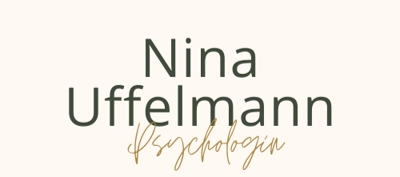Videoversion des Beitrags zum schauen oder hören:
How do you make the right decision? The challenges of difficult decisions
Today I would like to write about a topic that I often encounter in my practice: How to make the right decision - should I stay or should I go? Which option should I choose?
And I understand only too well how complex and painful difficult decisions are. During my Masters, I wanted to decide where in Europe I should move with my twins to combine my surfing dream and my professional development as a psychologist. "Should I stay or should I go?" or "What's the next right step?" can also relate to your current relationship or job.
At the time, I tried to gain control and as much certainty as possible before making a decision by doing a lot of research. There had to be one right place if I just looked long enough and weighed things up carefully enough. Or the job that simply fits our interests and needs perfectly, with great colleagues. Or the person, the one right person, the lid to the pot, with whom it just fits. So: you have to be able to get there somehow, to make the "right" decision?
Recognise reality: Perfection does not exist
The truth is: there is no perfect place where everything really comes together. Realistically, this probably applies to most people and situations. Maybe there's a job you're passionate about, but the atmosphere among your colleagues is bad. Maybe you think you've found your match, but as time goes on, the daily grind creeps in, your sex life goes to sleep and the grass gets greener on the other side.
And this is where I often enter my clients' lives and accompany them for a while. At the point where the grass is greener on the other side and the question arises - what now?
Decision-making methods: pro and con lists or intuition?
Pro and con lists often don't help because difficult decisions don't offer a clear best option. While one option looks better in some ways, the other may do so in other ways. We can let go of the idea that there is a clear right option that we just don't see. At the same time, we probably don't want to flip a coin to decide our fate.
Sometimes the answer lies not in careful lists or analyses, but in what feels right deep inside you. Trust that you already have all the resources within you to make a good decision. Your gut feeling can be a powerful compass that shows you the way when your mind is going round in circles. So to make the most informed decision possible, we can put ourselves in the shoes of the different options as vividly as possible.
Your values as a basis for decision-making
And before I write about how we can do this, I would like to add an important thought. The grass may seem greener on the other side, but the reality is much more important: the grass is greener where you water it. And your values, what is really important to you deep down in your heart at this stage, come into play here. Where in the world do you want to water your grass? Or in what relationship do you want to water your grass?
Appreciate the present and explore new options
In the decision-making process, it first makes sense to appreciate the current situation, the option you are currently in. You certainly had good reasons to choose the place you are currently in or to enter into a relationship with the partner you are currently with. Take some time to reflect on this and how your current location or relationship has influenced you. The current situation has certainly shaped you in one way or another, you may have gained new insights or perspectives and are now in a different place.
And then take time to sensitise yourself to the various other options. And patiently try out how it feels to be in these options. You can choose and visit different places at home that each represent one of the options. Which physical sensations become perceptible? What would you have to learn to accept? Who are you (not) then? What becomes important in this option? Which thought would need some space around it? Which needs can you (not) fulfil well? I would be happy to provide psychological counselling to help you prepare for and carry out this comprehensive exercise.
The ongoing decision-making process
It is important to realise that deciding where and how to water your grass is an ongoing process. This process requires not only time and courage, but also the willingness to embrace change and accept that there are no perfect solutions. It is about recognising compromises and learning to live with them. Sometimes this means saying goodbye to certain ideas in order to create space for new experiences and possibilities.
Take your time, listen to your inner self and have the courage to take the next step, no matter how small or big it may be. Because ultimately, we shape our lives not only through the big decisions we make, but also through the small, everyday steps we take. Your path is created by walking it - step by step.
Here is a video that illustrates this aspect in an entertaining way:
By the way, I've decided to water my grass in Denmark - even though the waves that originally drew me here haven't materialised for weeks. I'm willing to make sacrifices in terms of wave quality and surfing frequency. In return, I enjoy the benefits of a great school system and a child-friendly country that is a world leader in equality, sustainability and low corruption - issues that are also close to my heart. This has allowed me to tend to other aspects of my lawn over the past few weeks, including writing this blog post.
I hope this has given you some helpful ideas. Feel free to comment on it if you have any questions or suggestions, or write to me directly in a message. Are you currently in a decision-making process or have you made a big decision? What was helpful for you, what was particularly difficult? I look forward to hearing from you.


Sehr schön, danke Dir Nina!